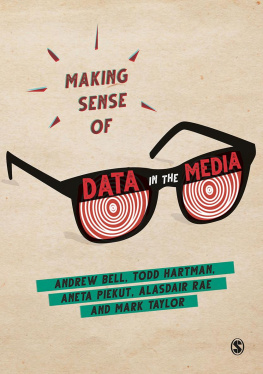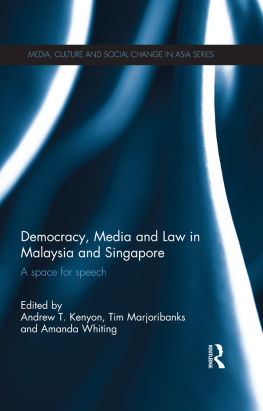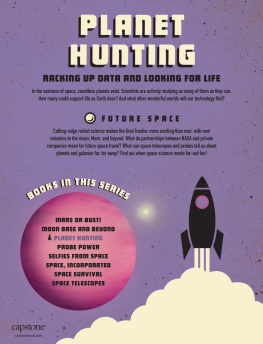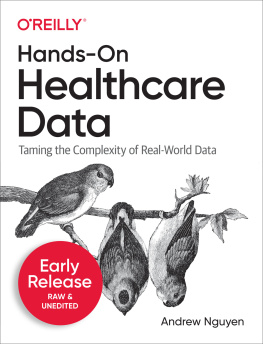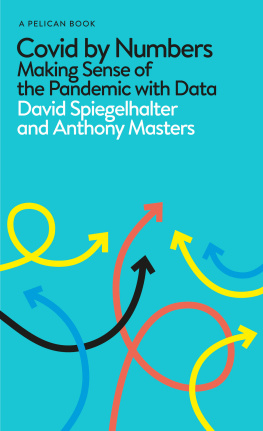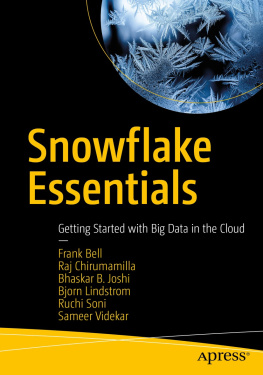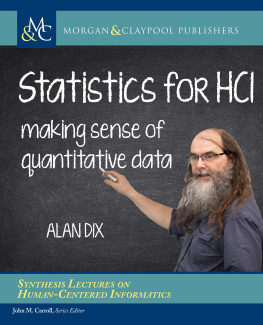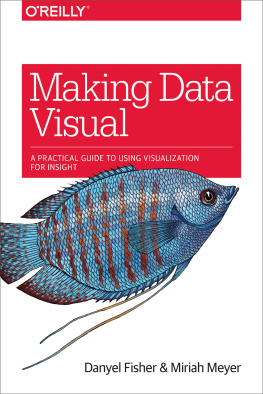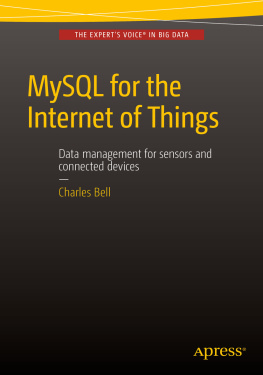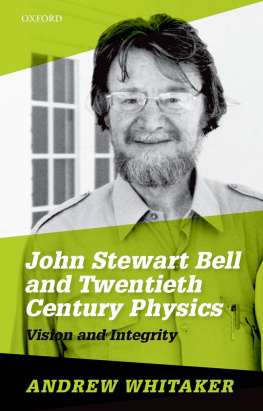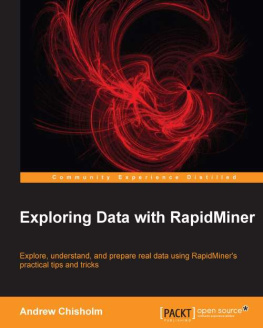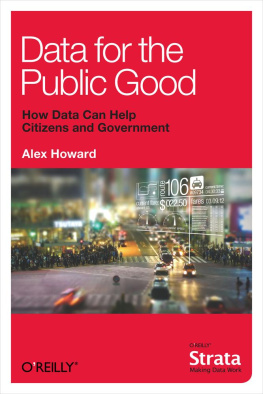SAGE Publications Ltd
1 Olivers Yard
55 City Road
London EC1Y 1SP
SAGE Publications Inc.
2455 Teller Road
Thousand Oaks, California 91320
SAGE Publications India Pvt Ltd
B 1/I 1 Mohan Cooperative Industrial Area
Mathura Road
New Delhi 110 044
SAGE Publications Asia-Pacific Pte Ltd
3 Church Street
#10-04 Samsung Hub
Singapore 049483
Andrew Bell, Todd Hartman, Aneta Piekut, Alasdair Rae and Mark Taylor 2020
First published 2020
Apart from any fair dealing for the purposes of research or private study, or criticism or review, as permitted under the Copyright, Designs and Patents Act, 1988, this publication may be reproduced, stored or transmitted in any form, or by any means, only with the prior permission in writing of the publishers, or in the case of reprographic reproduction, in accordance with the terms of licences issued by the Copyright Licensing Agency. Enquiries concerning reproduction outside those terms should be sent to the publishers.
Library of Congress Control Number: 2019940551
British Library Cataloguing in Publication data
A catalogue record for this book is available from the British Library
ISBN 978-1-5264-4719-7
ISBN 978-1-5264-4720-3 (pbk)
Editor: Michael Ainsley
Editorial assistant: Amber Turner-Flanders
Production editor: Imogen Roome
Marketing manager: Susheel Gokarakonda
Cover design: Lisa Harper-Wells
Typeset by: C&M Digitals (P) Ltd, Chennai, India
Printed in the UK
At SAGE we take sustainability seriously. Most of our products are printed in the UK using responsibly sourced papers and boards. When we print overseas we ensure sustainable papers are used as measured by the PREPS grading system. We undertake an annual audit to monitor our sustainability.
Acknowledgements
We are extremely grateful to the Nuffield Foundation, ESRC and HEFCE for funding the Q-Step programme that has allowed this work to take place. In particular, we would like to thank Dr Simon Gallacher at the Nuffield Foundation for his tireless work, constant support and enthusiastic advocacy for improving quantitative skills in the social sciences.
Also, thanks to Dr George Leckie, Professor Charles Pattie and Professor Ron Johnston for looking over previous drafts of chapters, as well as the anonymous reviewers who gave us excellent feedback. Thanks also to the students of our class Lies, Damned Lies and Statistics in Sheffield, and our Futurelearn Making Sense of Data in the Media MOOC, for letting us test some of these materials and ideas out on them. Thanks also to the audience at the Research Methods Festival Innovations in Teaching Statistics session, in Bath in July 2018, for your helpful suggestions.
Introduction
Statistics are everywhere in the news media. And yet they are widely misunderstood, poorly reported and often downright false. Not only that, but consumers of the news are not well prepared to understand the figures used by reporters and journalists. Just consider how many people openly flaunt their poor quantitative skills. Maths teachers regularly hear phrases from parents like, Were terrible at Maths, we cant help at all. Why is it that English teachers rarely get told by parents, We cant read very well, so we cant help Delila with her homework?
Politicians in the news havent helped remedy this quantitative skills deficit. In the run-up to the 2016 EU Referendum in the UK, Conservative MP Michael Gove defended Brexit by arguing that people in this country have had enough of experts. In the United States, President Donald Trump routinely attacks the news media when they dont report favourable coverage of his administration. For instance, he once tweeted that any negative polls are fake news, just like the CNN, ABC, NBC polls in the election.
Part of the problem is that people think statistics should provide an objective truth one that can be used to definitively prove things. In fact, this is far from the case. Sometimes statistics are blatantly misused. But there are many other examples where figures can actually be interpreted in more than one way. As it turns out, statistics are sometimes as fuzzy and subjective as any other research methods.
Given this state of affairs, perhaps you can forgive Trump and Gove in the above examples. With so much bad statistics, isnt it best to just ignore them entirely? We cant trust the experts because of all the bad statistics, so surely were better off just going with our intuition? An extra bonus of this course of action is that our views are never challenged, so we can continue believing whatever warm, fuzzy thing we want to believe.
This is one option. The problem is that it leaves us open to being manipulated and used by people who have their own, often sinister, motives. Corporations, news organisations and governments have realised that there are ways to subtly change and undermine public opinion, and to encourage people to buy a certain product, believe a certain viewpoint or vote a certain way. If we leave statistics in the gutter, and just go with our gut feelings, we leave ourselves open to those feelings being manipulated.
So whats the other option? The other option is a bit more difficult, requires a little more work and starts with reading this book. It involves learning how to understand statistics. It involves learning how to spot when statistics are done well, and when they are done poorly. It also involves reading news articles and poll results with a critical eye, and coming up with your own, sometimes subjective, fuzzy conclusions. And it involves being willing to let your preconceptions about your beliefs be challenged.
Fortunately, all this isnt as difficult as you might think. It turns out that by learning this one neat trick, you can understand everything that is written in the news and
OK, maybe its not that easy! But the ideas behind statistics dont need to be shrouded in complex equations and impenetrable language. Statistics are really just advanced common sense. That means there arent any tricks that will immediately give you an answer about the world or about statistics, or about anything else. But it also means that the same abilities you have in thinking critically about other things in the world can be applied to statistics as well.
Having said that, there are patterns in the things that people often get wrong in statistics, and it is some of the more common issues that we focus on in this book. Over the course of the next 250-or-so pages, youll see examples of statistics being used well, as well as being used badly. Youll see what people did right, and what they did wrong. And by doing so, youll see the sorts of things that will help you spot good and bad statistics in the news and media in the future.




